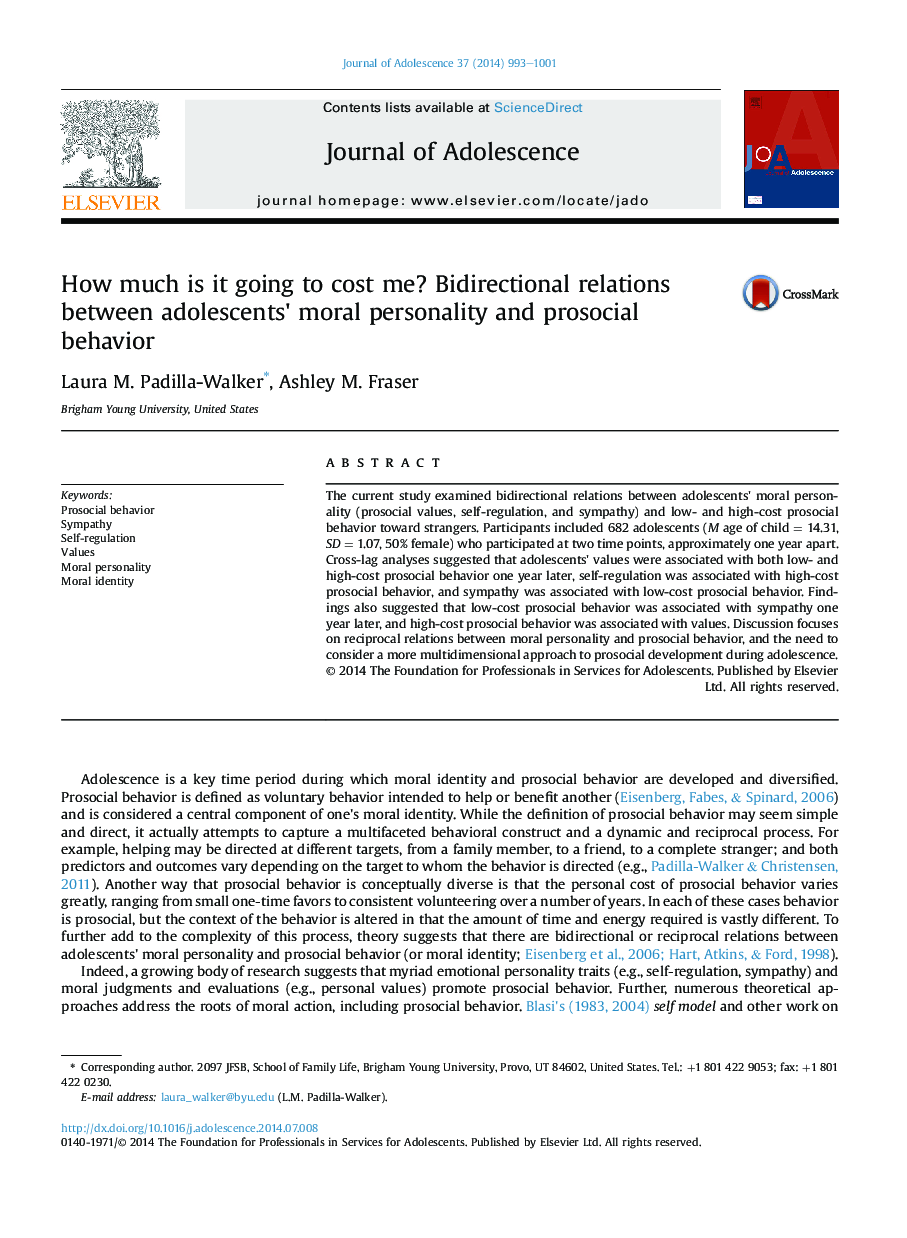| Article ID | Journal | Published Year | Pages | File Type |
|---|---|---|---|---|
| 10436698 | Journal of Adolescence | 2014 | 9 Pages |
Abstract
The current study examined bidirectional relations between adolescents' moral personality (prosocial values, self-regulation, and sympathy) and low- and high-cost prosocial behavior toward strangers. Participants included 682 adolescents (M age of child = 14.31, SD = 1.07, 50% female) who participated at two time points, approximately one year apart. Cross-lag analyses suggested that adolescents' values were associated with both low- and high-cost prosocial behavior one year later, self-regulation was associated with high-cost prosocial behavior, and sympathy was associated with low-cost prosocial behavior. Findings also suggested that low-cost prosocial behavior was associated with sympathy one year later, and high-cost prosocial behavior was associated with values. Discussion focuses on reciprocal relations between moral personality and prosocial behavior, and the need to consider a more multidimensional approach to prosocial development during adolescence.
Related Topics
Health Sciences
Medicine and Dentistry
Public Health and Health Policy
Authors
Laura M. Padilla-Walker, Ashley M. Fraser,
